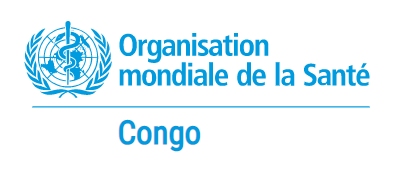Widespread flooding due to unusually heavy rainfall in the Republic of Congo has left more than 336 000 people in need of urgent humanitarian assistance. The floods have also damaged health facilities and schools and submerged swaths of farmland.
Nine of the country’s 12 departments have been affected, with those in the north of the country as well as departments bordering the Congo River among the most severely impacted. According to estimates by experts, the current rainfall is twice the average recorded in the 2022–2023 season. The water level in the Ubangi River, the largest right-bank tributary of the Congo River, has reached an all-time high.
The floods have destroyed or damaged 34 health facilities, 120 schools and more than 64 000 houses in the affected areas. Humanitarian needs are projected to rise, further worsening the plight of the affected population, especially vulnerable communities.
The main health threats include the risk of outbreaks of water-borne diseases such as cholera, vector-borne diseases like malaria or dengue, and vaccine-preventable diseases such as measles. Maternal and child health nutrition is also at risk, while sexual and gender-based violence could also heighten. Food insecurity, nutrition, access to health care services, as well as to safe water, sanitation and hygiene services are likely to deteriorate. Ensuring continuity of care for chronic diseases like HIV or diabetes and mental health, while mitigating the risk of drowning and injuries remains critical.
“WHO is committed to supporting the government to ramp up emergency response to save lives and ensure access to critical basic services,” says Dr Lucien Manga, WHO Representative in the Republic of Congo. “We are working with partner organizations to bolster relief response, support livelihoods and limit the threat of diseases outbreaks.”
A multisectoral emergency response plan is being developed to assist the affected population, including through provision of food and agricultural inputs to support livelihoods and improve food security; treatment of malnutrition among children under 5, providing quality health services to pregnant and breastfeeding women; as well as improving access to clean water and sanitation services.
Working with partners, WHO is stepping up efforts to provide emergency health services to avert spread of diseases; essential medicines and life-saving medical supplies; and ensure critical quality health services through functional health facilities and mobile clinics.
WHO is also assisting the Ministry of Public Health in setting up an early warning alert and response system for epidemics, as well as quickly deploying its national first responders team for rapid situation analysis to ensure effective relief operations.
Efforts are also being made to ensure that learning resumes under appropriate conditions in the affected areas along with the provision of psychosocial support to children and provide protection services, including prevention of gender-based violence and care for victims.
Distributed by APO Group on behalf of World Health Organization (WHO) – Republic of the Congo.
